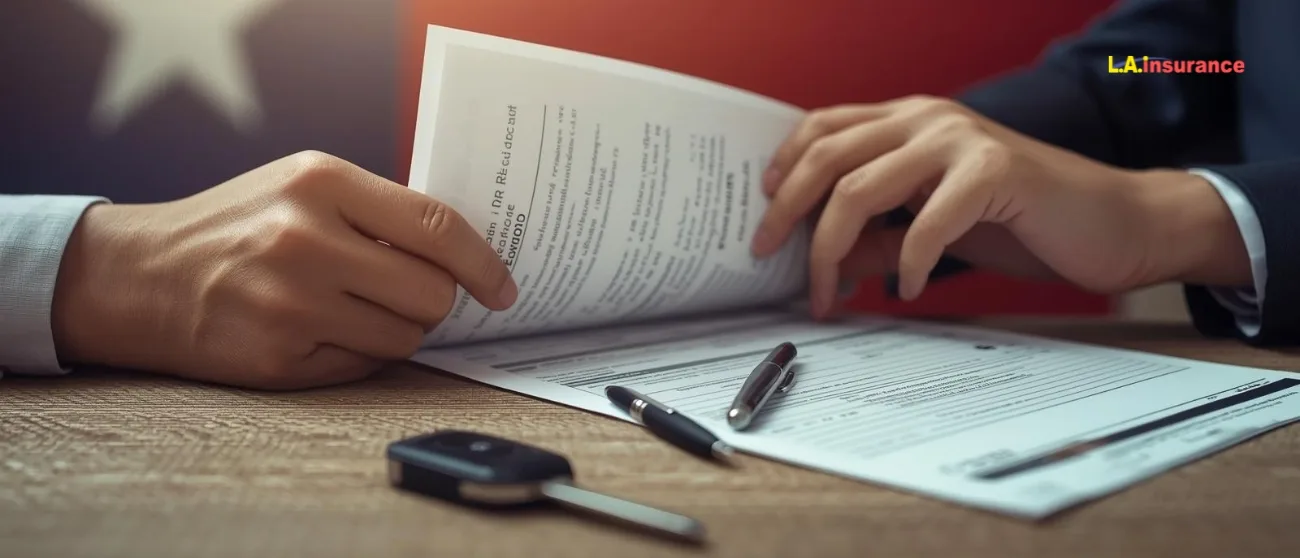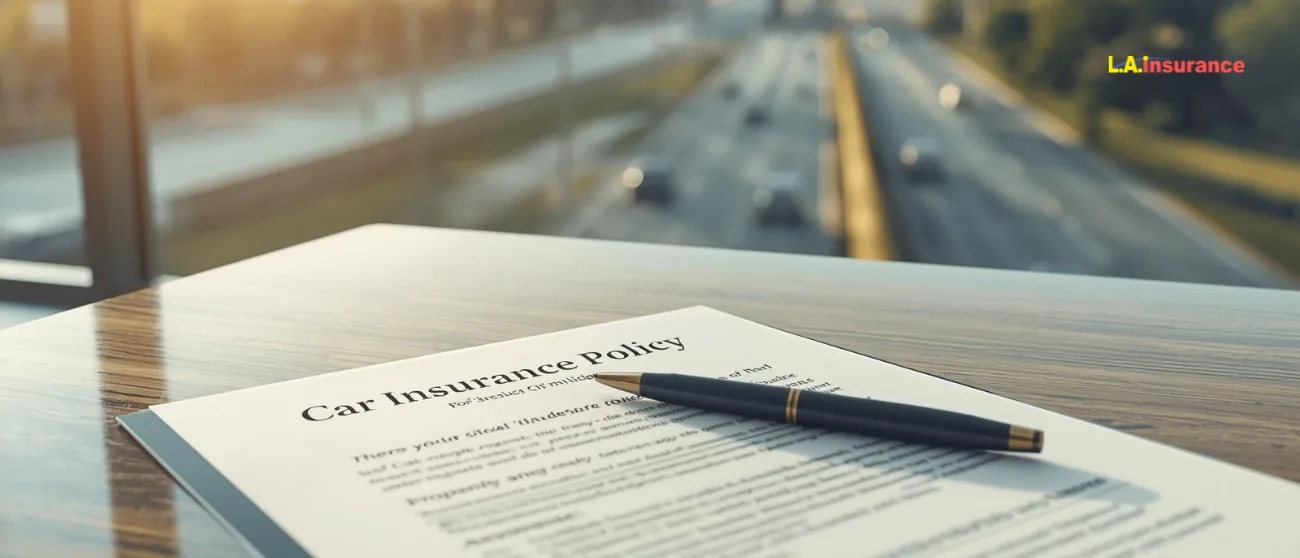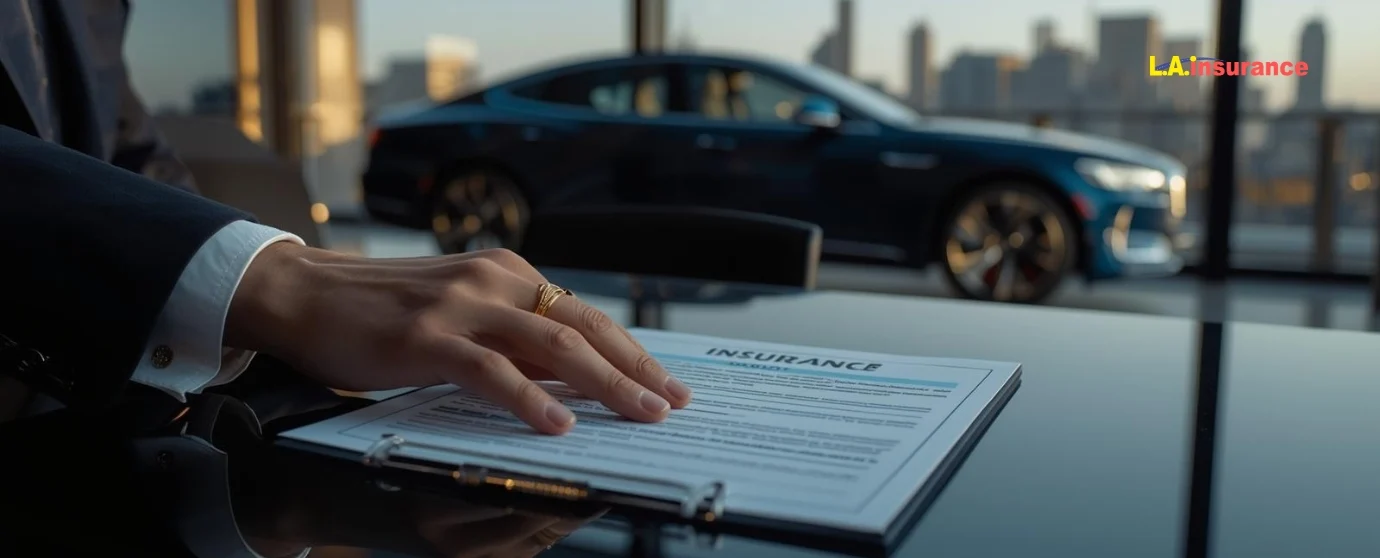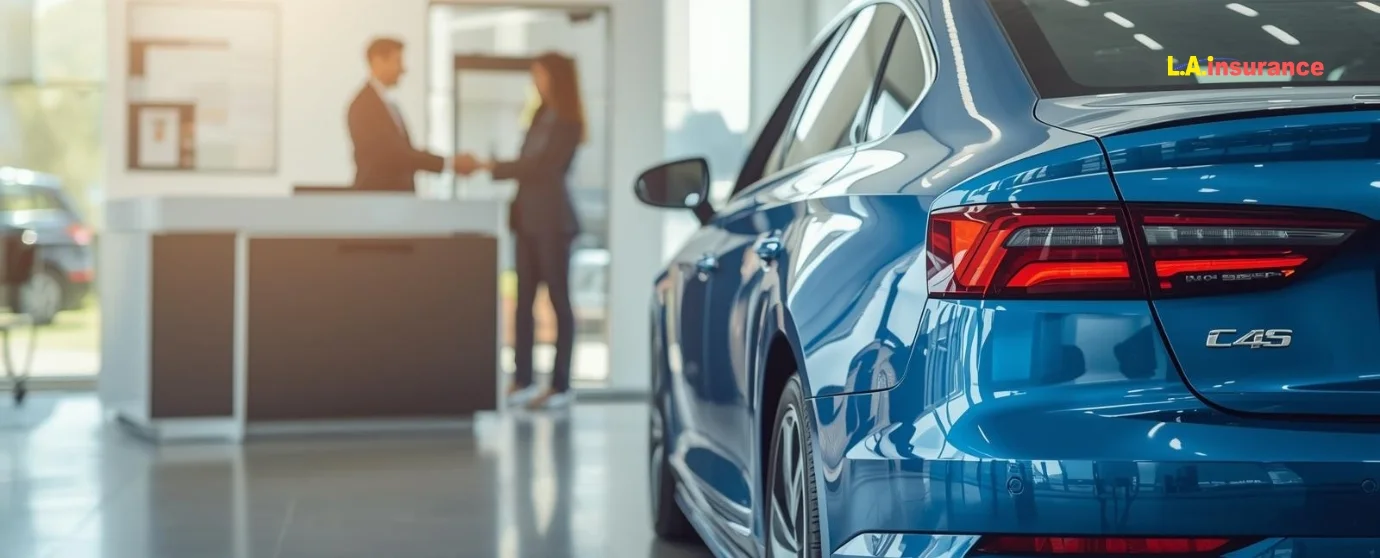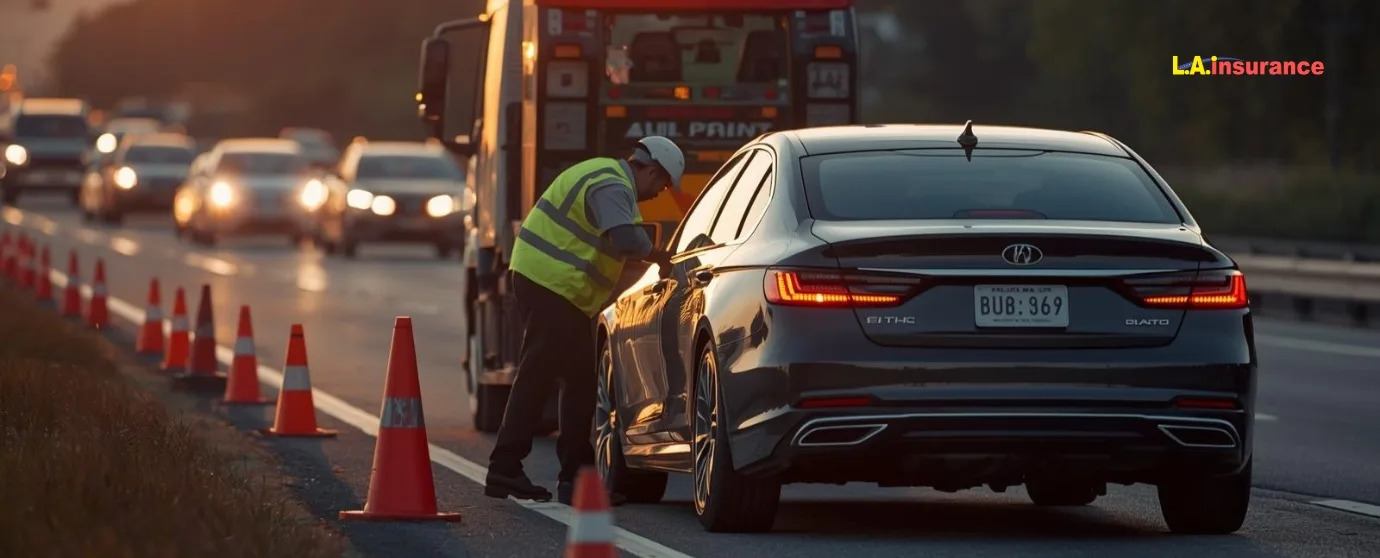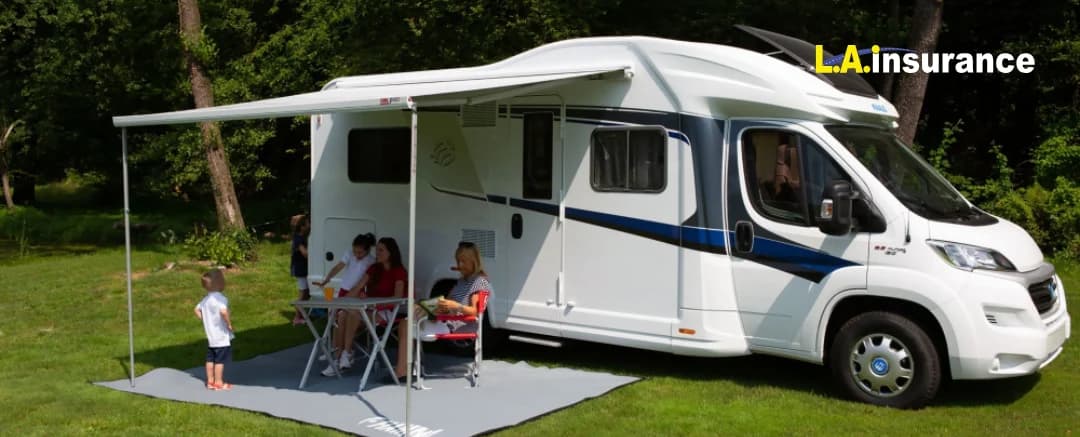
Publish Date: 03-08-2025
RV & Motorhome Insurance
Last Updated: 15-10-2025
What Does RV Insurance Cover?
Protecting your home on wheels is not optional, especially when you consider the risks both on and off the road. Every 30 minutes, an RV is stolen in the United States, with nearly $1 billion worth of RVs stolen annually, according to Worldmetrics.
Your RV is also exposed to danger while driving. In fact, the National Highway Traffic Safety Administration (NHTSA) reports that over 76,000 RV accidents occur each year.
Beyond accidents and theft, there are other threats such as animal collision, vandalism, fire, and natural disasters. This leads many RV owners to ask, what does my RV insurance cover? Will it protect against theft, accidents, fire, or natural disaster? Will it cover awning damage or roof leaks? What type of coverage do you need to safeguard your RV from all this damage?
If these questions sound familiar, this article is for you. Whether you own a motorhome, travel trailer, campervan, or fifth wheel, we will answer the most important questions about RV insurance coverage.
What Is RV Insurance?
To put it simply, RV insurance is a policy that protects your recreational vehicle against the risks that come with owning and using it, on the road, at the campsite, or even when its parked.
You can think of RV insurance as a combination of both auto insurance and home insurance/renters insurance. It can cover accidents, theft, natural disasters, and even your personal belongings inside the RV.
And if you own a motorized RV (like a motorhome), insurance is usually required by law. But if it’s towable (like a travel trailer), it’s often optional unless you’re financing it. However, ensuring coverage is a smart move either way.
Now, let’s talk about what RV insurance covers for you if you already have one.
However, if you’re planning to purchase one, you can always explore the affordable RV and motorhome insurance coverage from L.A. Insurance. We’re your local and most affordable insurance agency. Whether you’re in Michigan, Colorado, Texas, Florida, Arizona, or any other state, you can get the cheapest RV insurance quote right away.
What Does RV Insurance Cover?
When you travel in an RV, it’s important to have insurance to protect your investment. Whether you're driving a Class A motorhome across the country, towing a travel trailer through the mountains, or camping in a pop-up, RV insurance helps protect you from unexpected issues. Let’s discuss what your standard RV insurance typically covers. Plus, the optional add-ons you can purchase to enhance your protection.
- Basic Coverage
- Optional Coverage (Add-ons)
Basic Coverage You’ll Find in Most RV Insurance Policies
These are the core protections you’ll find in nearly every RV policy, and honestly, they’re the first thing you should look for when shopping for coverage.
1. Liability RV Insurance
Liability insurance has two parts. The first part is bodily injury liability, which protects you if you hurt someone. The second part is property damage liability, which pays for damage you cause to someone else's vehicle or property.
If you own a motorized RV, this is usually required by law.
Example: You accidentally sideswipe another vehicle while pulling out of a tight gas station. This helps pay for their repairs or medical bills.
2. Collision RV Insurance Coverage
It pays for damage to your RV if you crash into another vehicle, a pole, a fence, a guardrail, or that one sneaky tree in a campground parking lot. No matter who is at fault, collision coverage ensures you receive your compensation whenever a collision happens.
More>> Does RV Insurance Cover Awning Damage?
3. Comprehensive RV Insurance Coverage
It's similar to comprehensive auto insurance. If you have this policy, your RV/motorhome will be protected from all non-collision events such as fire, theft, vandalism, natural disaster (e.g., hurricane, windstorm, flood, hail), and falling tree branches.
Although it covers only non-collision incidents, animal collisions (e.g., deer collision) are covered through comprehensive coverage. It’s because comprehensive RV insurance is designed to protect you from all those incidents that are out of your control. And a deer-RV crash isn’t something in your control.
So, yes, having this comprehensive coverage means you don’t need to worry if a storm hurls a tree limb through your windshield.
More>> Does RV Insurance Cover Water Damage?
4. Uninsured/Underinsured Motorist Coverage
As the term suggests, it covers you and your RV if someone crashes into you but doesn’t have enough (or any) insurance.
Example: A driver without insurance t-bones your motorhome. In this case, you won’t be left alone covering the cost on your own.
5. Medical Payment Coverage
It covers your medical bills or those of your passengers, no matter who caused the accident. It typically pays for:
- Doctor visits
- Hospital stays
- Surgery
- X-rays
- And other medical bills
Heads Up: This usually applies to motorhomes only, not towables.
Optional Add-Ons That Are Totally Worth Considering
Apart from standard or basic coverage, you may also consider exploring a few important optional add-on coverages. They may not be required, but if you actually use your RV like most of us do, or if you use it full-time, they can be really useful for you.
1. Vacation Liability
Vacation Liability RV insurance protects you if someone gets hurt near your RV while it’s parked. For example, if a neighbor's child trips on your RV stairs at a campsite, you could be held responsible and may have to pay for their injuries. With vacation liability, it will cover costs like medical bills, legal fees, or property damage on your behalf.
2. Emergency Expense Coverage
Pays for hotels, meals, and travel costs if your RV breaks down far from home. Let’s say your rig breaks down in Montana, 300 miles from anything. Instead of roughing it, this helps you stay fed and sheltered.
3. Total Loss Replacement
If your RV is totaled, this pays to replace it with a brand-new model, not its depreciated value. For instance, you bought your RV last year for $90,000. It’s now worth $70,000. If it gets destroyed, this coverage can pay for a new one worth the full original value.
4. Personal Property Coverage
It covers items inside your RV, including phones, laptops, fishing gear, tools, and even your espresso machine. So, if you have high-value items in your RV and you want to protect them, you should certainly purchase this add-on along with the basic coverage.
5. Roadside Assistance & Towing
Suppose you’re on a quiet stretch of highway. Middle of nowhere. It’s sunset, your tire blows out, and your RV is too heavy to jack up yourself. And even worse is that your phone signal is shaky, and your regular auto insurance doesn’t even cover RV towing.
In a situation like this, your only savior is roadside assistance and towing coverage. This add-on usually includes:
- Flat tire repair or change
- Jump-starting your battery
- Fuel delivery if you run dry
- Locksmith services (Yes, it’s possible to lock yourself out of your RV)
- Towing to the nearest repair shop
This could be really helpful for you if you frequently travel with your RV. Because RVs aren’t cheap to tow. Some rigs require specialized equipment and can cost $400 to $1,000+ per tow.
6. Pet Injury Coverage
RV life is better with pets, especially when you’re completely alone. They are not just passengers, they’re part of the adventure. But what most people don’t realize is that if your RV is in an accident, your standard policy might not cover vet bills for your dog or cat.
Pet injury coverage adds a layer of protection just for them.
How it works:
- If your dog or cat is hurt during a covered accident, this policy can pay up to $1,000 in vet bills.
- No deductible applies.
- It typically kicks in regardless of fault.
Let’s say you swerve to avoid a deer and end up in a ditch. Your pup hits the side of a cabinet and needs an emergency vet visit. Without this coverage, you’re paying out of pocket.
7. Roof Protection Coverage
Your RV’s roof is always exposed to rain, wind, branches, sun damage, you name it. And most standard RV policies do not cover roof damage unless it’s caused by a very specific event (like a falling tree in a storm).
That’s where Roof Protection Plus comes in. This add-on can cover:
- Wear and tear overtime
- Seals or seams that crack
- Water leaks due to gradual roof failure
- Structural damage caused by the roof’s failure
Let’s say your RV is parked long-term under trees. A small leak starts, and you don’t notice until it’s caused water damage inside. This coverage helps pay for roof repairs and fixes for anything that got damaged as a result.
Important Note: It’s usually available only for RVs under six years old, and you may need to keep up with regular maintenance to qualify.
8. Pest Damage Protection
Here’s the not-so-fun reality of RV ownership:
Rodents love RVs. Especially when they’re parked or in storage. Pest damage protection covers the nasty surprises that come from:
- Rodents chewing through wires
- Birds or animals damaging the insulation
- Insects causing structural or interior issues
Let’s say a mouse crawls into your trailer while it’s stored for winter and chews through your electrical system. Repairs could cost you thousands of dollars. This coverage helps cover the cost without fighting over whether it’s your fault or preventable.
Like roof protection, this add-on usually applies only to newer RVs that are under 6 years old. It typically has a $250 deductible. These extra add-ons may increase your RV insurance cost slightly, but they are worth it when you face a situation like that.
What Does RV Insurance Not Cover?
RV insurance certainly covers most of the risks that you might encounter while driving or living full-time. But there are some exclusions too. Here’s what most RV insurance policies typically do not cover:
- General wear and tear (aging tires, faded paint, etc.)
- Mold, rot, or fungi caused by poor maintenance
- Delamination repairs (when RV walls start to separate)
- Damage from neglect, like not sealing your roof
- Mechanical or engine breakdowns (unless added separately)
- Infestation from pests (unless you have pest damage protection)
- Damage during illegal activity or unapproved use (e.g., using your RV for business when your policy is for personal use)
- Flood damage or hurricane loss unless you have comprehensive coverage
Always read the fine print. What’s excluded from one policy might be covered in another, if you ask for it.
What Does Travel Trailer Insurance Cover?
Not every RV is the same, so the coverage. Travel trailer insurance works a bit differently than motorhome insurance because trailers aren’t driven; they’re towed. And that changes what’s covered and what’s not.
So here’s what travel trailer insurance covers:
- Comprehensive coverage: protects against theft, vandalism, hail, falling trees, fire, and animal collisions.
- Collision coverage: covers damage from accidents with other vehicles or objects, even if you’re at fault.
- Contents coverage: protects personal belongings inside the trailer
- Vacation liability: covers injuries or damage while your trailer is parked at a campsite.
- Emergency expense: pays for hotel and food if your trailer becomes unlivable away from home.
- Medical payments: pays for injuries inside/around the trailer (when parked)
- Roadside assistance: for flat tires, towing, jumpstarts, and fuel delivery
- Uninsured/underinsured motorist coverage: applies if another driver causes a crash but can’t pay.
- Full-timer options: available if your trailer is your primary residence.
- Optional add-ons: life roof protection, pest damage, and pet injury (depending on your insurer)
What It Doesn’t Cover
Most policies exclude:
- Liability while towing
- Regular wear and tear
- Delamination, mold, or rot
- Flood or hurricane damage (unless you have comprehensive)
- Damage from using your travel trailer for commercial/rental use
- Improper storage or poor upkeep
More>> Do You Need Insurance for RV Trailer?
What About Non-Motorized RVs?
Non-motorized RVs include:
- Travel trailer
- Fifth wheels
- Toy haulers
- Pop-ups
- Truck campers (slide-ons)
These don’t have engines, so they don’t need traditional liability coverage. Instead:
- They’re protected by travel trailer insurance for physical damage and personal items
- The towing vehicle’s auto policy provides liability coverage on the road
- You can add extras like vacation liability, total loss replacement, and personal effects coverage.
However, what if you're living in your RV full-time? In that case, you'll need full-time RV Insurance. Learn what is full-time RV Insurance and what does it cover?
Who Needs RV Insurance?
If you own a motorhome, you most likely need RV insurance by law, because it’s a drivable vehicle. But even if your RV is towable (like a travel trailer, fifth wheel, or pop-up camper), you still need insurance if:
- You're financing or leasing it
- You travel often and want protection against damage, theft, or weather
- You live in your RV full-time (you'll need a special policy for that)
- You carry expensive gear or personal belongings
- You want peace of mind for liability, roadside help, or emergency expenses
Simply put, if your RV is more than just a parked decoration, you need insurance. Without it, a single accident, storm, or theft could wipe out your investment and your trip.
Do You Need RV Insurance in Michigan and What Does It Cover?
Yes, RV insurance is required in Michigan if you own a motorhome. That means you must carry liability coverage to legally drive it on public roads. As of recent data, the state minimums are:
- $50,000 for injury per person
- $100,000 for accident
- $25,000 for property damage
If you own a travel trailer, insurance isn’t legally required, but your two vehicles’ auto policy must have liability coverage. However, to protect the trailer itself from theft, fire, or collision, you’ll need a separate RV policy.
Also, if your RV is financed or leased, your lender will likely require comprehensive and collision coverage.
Michigan also has unique no-fault laws, so having proper RV coverage is a legal necessity. And it’s also important to maintain the required coverage to avoid any financial messes.
More>> Do You Have to Have RV Insurance?
What If You’re a Full-Time RVer?
If you’re using your RV full-time and primary home, especially for six months or more a year, you should definitely get full-timer RV insurance coverage.
This type of policy goes transcend standard coverage. It works more like a mix of homeowners' insurance and auto insurance. In addition to basic liability insurance, it usually includes loss assessment, scheduled medical payments, emergency expense, and personal property coverage.
Final Thoughts on RV Insurance Coverage
RV insurance is not only about meeting legal requirements, but also about protecting your travel, your property, and your peace of mind. Whether you own a motorhome or a towable trailer, having the right coverage means you’re ready to face the unexpected, including accidents, storms, theft, or breakdowns. Whether you need liability insurance or full-time protection, every policy and coverage should match how you use your recreational vehicle.
FAQs About RV Insurance Coverage
Is RV insurance required?
Yes, if your RV is motorized (like motorhome), insurance is legally required in almost every state. If it’s towable (like a travel trailer), it’s not legally required, but still highly recommended.
Is a camper covered under homeowners insurance?
Only while it’s parked at home, and even then, coverage is very limited. Once you tow or move it, your homeowners policy won’t protect it.
Does RV insurance cover mold and water damage?
Only if the damage is sudden and caused by a covered event, like a storm or burst pipe. If it’s due to leaks, poor maintenance, or neglect, it’s not covered.
Does RV insurance cover roof leaks?
Not usually. Most policies exclude wear and tear or gradual roof damage. You’ll need special roof protection coverage if you want that included.
Does RV insurance cover flood damage, hurricane, or hail damage?
Yes. But you must have comprehensive coverage without it. Otherwise, any weather-related damage isn’t covered.
Does my car insurance cover RV rental?
Not by default. Some auto policies offer limited coverage, but you’ll usually need to buy separate insurance through the rental company or your insurer.
Does RV insurance cover delamination?
No. Delamination is usually caused by long-term moisture or structural issues, and that’s considered wear and tear, which most policies don’t cover.
Editorial Disclaimer
The information provided on this blog is for general informational purposes only and does not constitute professional insurance, legal, or financial advice. Coverage and rates are subject to individual eligibility, underwriting guidelines, and state availability. For specific questions regarding your policy or to get an accurate quote, please contact a licensed L.A. Insurance agent directly. We're an independent agency and not a direct insurance carrier. For more information on how we operate and handle your data, please see our Terms and Conditions and Privacy Policy.
Tag :
RV insurance
RV & Motorhome Insurance
